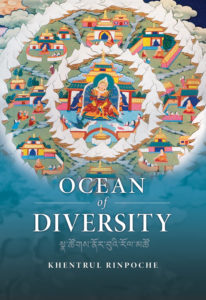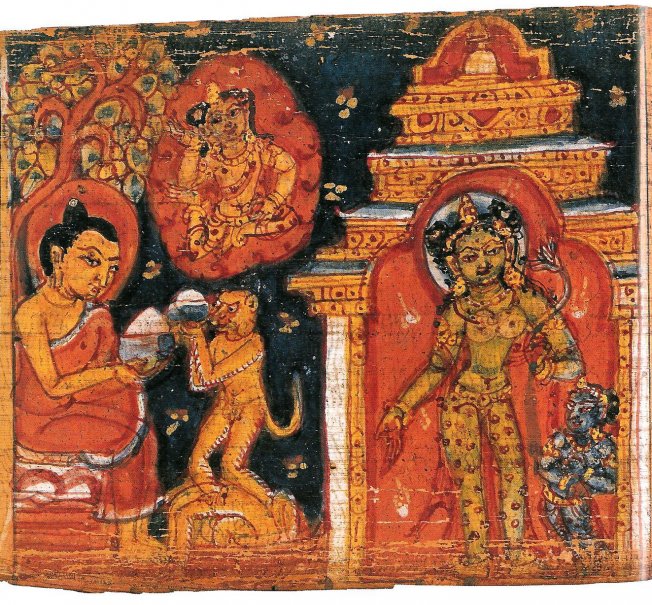 Shar Khentrul Jamphel Lodrö (ཤར་མཁན་སྤྲུལ་རིན་པོ་ཆེ་འཇམ་དཔལ་བློ་གྲོས); Joe Flumerfelt, ed. 2015. A Joyful Ocean of Precious Diversity: An unbiased summary of views and practices, gradually emerging from the teachings of the world’s wisdom traditions (སྣ་ཚོགས་ནོར་བུའི་རོལ་མཚོ། །རིས་མེད་འཛམ་གླིང་རིག་པའི་གཞུང་ལུགས་བྱུང་རིམ་ལྟ་གྲུབ་ཉིང་བསྡུས།།). Belgrave, Australia: Tibetan Buddhist Rimé Institute, ISBN: 9780994445308. US$24.95.
Shar Khentrul Jamphel Lodrö (ཤར་མཁན་སྤྲུལ་རིན་པོ་ཆེ་འཇམ་དཔལ་བློ་གྲོས); Joe Flumerfelt, ed. 2015. A Joyful Ocean of Precious Diversity: An unbiased summary of views and practices, gradually emerging from the teachings of the world’s wisdom traditions (སྣ་ཚོགས་ནོར་བུའི་རོལ་མཚོ། །རིས་མེད་འཛམ་གླིང་རིག་པའི་གཞུང་ལུགས་བྱུང་རིམ་ལྟ་གྲུབ་ཉིང་བསྡུས།།). Belgrave, Australia: Tibetan Buddhist Rimé Institute, ISBN: 9780994445308. US$24.95.
OCLC: 978641292. Official site: rimebuddhism.com
Contents:
Acknowledgments … vii
Editor’s Preface … ix
Introduction … 1
PART ONE: WORKING WITH DIVERSITY
1 The Nature of Belief … 15
2 The Rimé Philosophy … 29
PART TWO: THE WORLD'S BELIEF SYSTEMS
Systems with an Extrinsic Focus
3 Ancient Wisdom Traditions … 49
4 Hinduism … 67
5 Judaism … 89
6 Christianity … 107
7 Islam … 129 Continue reading “Khentrul Rinpoché (2015), A Joyful Ocean of Precious Diversity”



